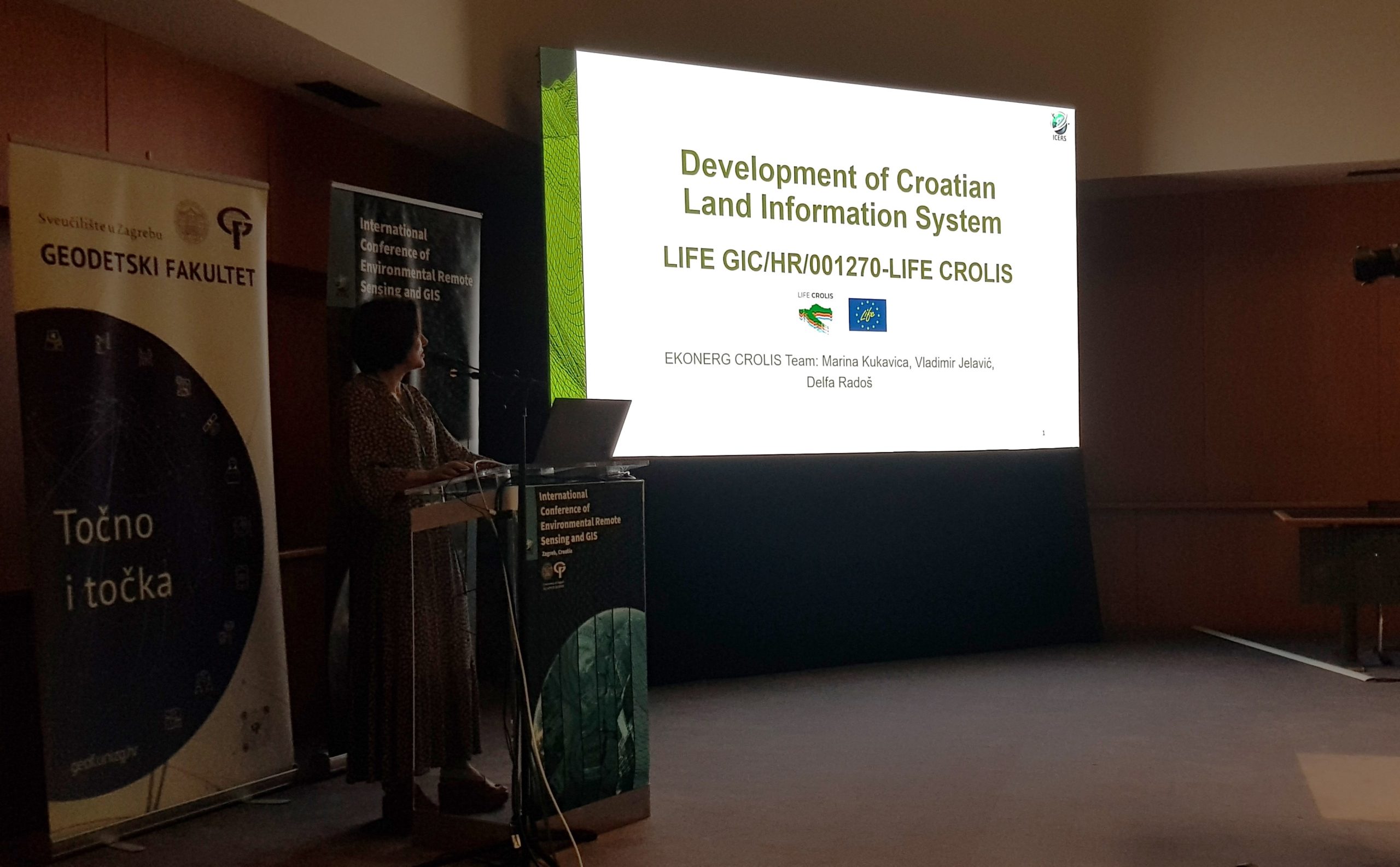
Development of the Croatian Land Information System

During the first day of the International Conference of Environmental Remote Sensing and GIS (ICERS) held at the National and University Library in Zagreb from July 11th to 12th, 2024, Ekonerg d.o.o., as a partner in the LIFE CROLIS project, presented the results of their work on the development of the National Land Information System in Croatia.
The prepared publication ‘Development of the Croatian Land Information System’ for the ICERS Conference provided a brief overview of the project task and the achieved results in establishing the National Land Information System in the Republic of Croatia.
In her presentation, Ms. Delfa Radoš (Ekonerg d.o.o.) mentioned that one of the main goals of the LIFE Croatian Land Information System (CROLIS) project is the development of a harmonized land monitoring data model. That data model enables integration and processing of Land Cover (LC), Land Use (LU) and land management data from different data sources (national spatial data and publicly available spatial data within the Copernicus mission and services) and its use for a variety of purposes such as Land Use, Land-Use Change and Forestry (LULUCF) reporting and accounting purposes in line with the requirements of international (United Nations Framework Convention on Climate Change, UNFCCC and Paris Agreement, PA) and EU legislation, robust basis for planning and implementation of Greenhouse Gas (GHG) mitigation actions in the land use sector, etc. Within the project the LU conceptual model was created by the recommendations of European Environment Agency (EEA) when creating CLC+ layers while the LC conceptual model includes (in this early stage of development) a minimum of 6 LC categories identified using newly Object Based Image Analysis (OBIA) approach methodology. The newly developed methodology is applicable throughout the Republic of Croatia, where Accuracy Assessment is correlated with input vector data.
Entire publication is avalable here or through the Conference website or via Open Access to all published papers: https://zenodo.org/communities/icers/.
Additionally, you can access the presentation here.
Share this post: